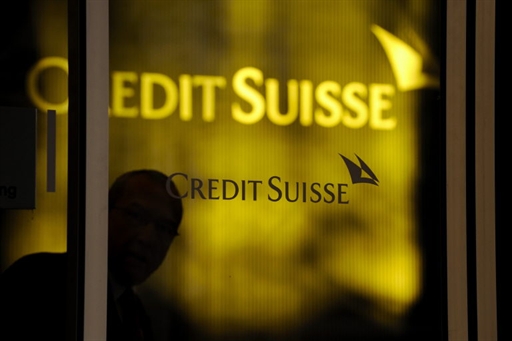German tax raid targets Credit Suisse staff

German tax investigators were seeking evidence against Credit Suisse employees as well as clients during a series of raids on bank branches on Wednesday.
If such evidence is found, Credit Suisse could find itself in much the same position as UBS in the United States when key staff and the bank itself were prosecuted for aiding and abetting tax evasion.
Some 13 Credit Suisse bank offices were searched in Düsseldorf, Berlin, Munich and other German cities after the authorities paid for confidential banking data that had been stolen from Switzerland.
Düsseldorf state prosecutor Johannes Mocken said his office suspected an unspecified number of Credit Suisse employees of being accessories to tax evasion. Such suspicions could have come from earlier investigations into the bank’s clients who had been questioned following the acquisition of the data, according to Swiss tax law expert Peter V Kunz.
“I believe the German prosecutors had a double strategy: to find extra evidence against Credit Suisse clients and also to uncover evidence against the bank’s employees,” Kunz told swissinfo.ch.
“This would be more of a problem for the employees than the bank unless proof can be found that Credit Suisse systematically assisted German citizens to avoid tax with the approval of top managers.”
Worst case scenario
In the United States, such evidence was found against UBS after whistleblower Bradley Birkenfeld lifted the lid on the bank’s operations.
Top executives, such as the former head of wealth management Raoul Weil, were hauled before investigators, and the bank was forced to hand over confidential client data.
As yet, there is no suggestion that things could get that bad for Credit Suisse in Germany. But the raid on the bank’s 13 branches in Germany using 140 police officers could worry client relationship advisors as well as their customers.
“Credit Suisse is working in close cooperation with the relevant local authorities. As this concerns an on-going investigation we can provide no further comment,” said Credit Suisse spokesman Marc Dosch.
Kunz does not believe Switzerland’s objections to Germany’s use of stolen bank data would hold much water in a legal battle. A CD of stolen bank data was sold to state authorities in North Rhine-Westphalia for €2.5 million (SFr3.36 million) in February, while Lower Saxony bought another batch last month.
The Swiss authorities are poised to ratify a revised double taxation agreement with Germany, but Switzerland has repeatedly said it would not provide administrative assistance to tax evasion investigations using stolen data.
Reputational damage
But such objections would carry little weight in an investigation being carried out on German soil, according to Kunz.
“When the CDs were stolen, it stoked up a lot of criticism, but right now there does not appear to be any room for those complaints,” he said. “The German authorities are carrying out this investigation in their own country and unless they ask for cross-border assistance, there is very little Switzerland can do.”
But the raids will have done nothing for the reputation of Credit Suisse, which until now has been able to distance itself from the problems experienced by its cross-town neighbour UBS.
Shares dipped by 1.73 per cent by mid-afternoon before closing the day down 0.61 per cent. The news could also put a dent in new assets flowing into the bank, despite its insistence that it has always behaved properly in cross-border private banking.
Global pressure
Swiss banks have come under increasing pressure in the past 18 months from a number of countries that accuse Switzerland’s financial system of aiding and abetting foreign tax cheats.
Last year Switzerland was forced to agree to revise numerous double taxation agreements with other nations.
UBS has so far borne the brunt of the global crusade against tax evasion after it admitted last year helping clients illegally hide assets from the US tax authorities.
However, it was widely assumed that other Swiss banks would be caught up in separate investigations, particularly after a spate of thefts of confidential data that were sold to the tax authorities of various countries.
Besides the CDs bought by German states, stolen data from the Geneva-based wealth management branch of HSBC bank was sold to the French authorities last year. It has reportedly been handed on to Italy, Spain and Britain.
Two years ago, Germany successfully forced Liechtenstein into closer cooperation in cases of tax evasion after buying stolen data that had been lifted from banks in the Principality.
Matthew Allen, swissinfo.ch
Switzerland came under sustained attack in 2009 for helping foreign tax evaders hide their assets.
The most damaging tax evasion case involved the activities of UBS bank in the US. In February, UBS was fined $780 million after admitting helping US citizens to dodge taxes.
In September, the Swiss government was forced to hand over the details of 4,450UBS clients to the US – in effect violating Swiss banking secrecy to prevent a ruinous court case for UBS.
The Swiss Federal Administrative Court ruled that the handover was illegal, but parliament has since approved the deal.
In December, an employee of the Geneva-based HSBC private bank passed confidential client data to the French authorities.
In February 2010, the German state of North-Rhine Westphalia bought a stolen CD of Swiss banking data for €2.5 million.
In June, the state of Lower Saxony bought more stolen bank data with financial assistance from the German government.

In compliance with the JTI standards
More: SWI swissinfo.ch certified by the Journalism Trust Initiative




You can find an overview of ongoing debates with our journalists here. Please join us!
If you want to start a conversation about a topic raised in this article or want to report factual errors, email us at english@swissinfo.ch.